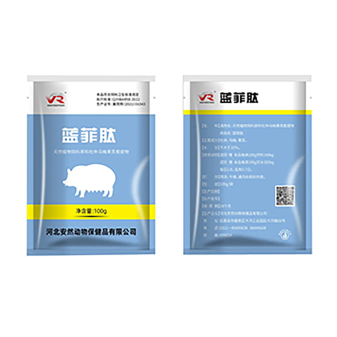- Afrikaans
- Albanian
- Amharic
- Arabic
- Armenian
- Azerbaijani
- Basque
- Belarusian
- Bengali
- Bosnian
- Bulgarian
- Catalan
- Cebuano
- Corsican
- Croatian
- Czech
- Danish
- Dutch
- English
- Esperanto
- Estonian
- Finnish
- French
- Frisian
- Galician
- Georgian
- German
- Greek
- Gujarati
- Haitian Creole
- hausa
- hawaiian
- Hebrew
- Hindi
- Miao
- Hungarian
- Icelandic
- igbo
- Indonesian
- irish
- Italian
- Japanese
- Javanese
- Kannada
- kazakh
- Khmer
- Rwandese
- Korean
- Kurdish
- Kyrgyz
- Lao
- Latin
- Latvian
- Lithuanian
- Luxembourgish
- Macedonian
- Malgashi
- Malay
- Malayalam
- Maltese
- Maori
- Marathi
- Mongolian
- Myanmar
- Nepali
- Norwegian
- Norwegian
- Occitan
- Pashto
- Persian
- Polish
- Portuguese
- Punjabi
- Romanian
- Russian
- Samoan
- Scottish Gaelic
- Serbian
- Sesotho
- Shona
- Sindhi
- Sinhala
- Slovak
- Slovenian
- Somali
- Spanish
- Sundanese
- Swahili
- Swedish
- Tagalog
- Tajik
- Tamil
- Tatar
- Telugu
- Thai
- Turkish
- Turkmen
- Ukrainian
- Urdu
- Uighur
- Uzbek
- Vietnamese
- Welsh
- Bantu
- Yiddish
- Yoruba
- Zulu
10 月 . 15, 2024 04:08 Back to list
Disinfectants Commonly Used by Veterinarians for Animal Care and Safety
What Disinfectant Do Vets Use?
Veterinary clinics and animal hospitals are crucial facilities that ensure the health and well-being of our pets and livestock. Given the diverse range of pathogens that can affect animals, it is vital that these facilities maintain stringent hygiene practices. Disinfectants play a key role in achieving this goal, yet many people may wonder what specific chemical agents veterinarians utilize to keep their premises clean and safe for animals. In this article, we will explore the types of disinfectants commonly used in veterinary settings, their effectiveness, and the best practices associated with their use.
Types of Disinfectants Used in Veterinary Clinics
1. Quaternary Ammonium Compounds (Quats) These are among the most commonly used disinfectants in veterinary practices. Quaternary ammonium compounds are effective against a wide variety of bacteria, viruses, and fungi. They are relatively safe to use around animals compared to harsher disinfectants and possess residual activity, meaning they continue to work even after the initial application. Products containing quats are often used on surfaces, equipment, and sometimes even in animal baths.
2. Chlorine Compounds Bleach, a sodium hypochlorite solution, is a potent disinfectant commonly employed in veterinary settings. Due to its strong oxidizing properties, it is effective against many pathogens, including parvovirus and other resistant organisms. However, bleach must be used with caution as it can be harmful to animals if they come into contact with surfaces that aren't properly rinsed after application. Additionally, it can corrode metal surfaces and is less effective in the presence of organic matter.
3. Phenolic Compounds These disinfectants are known for their ability to kill a broad spectrum of pathogens, including bacteria and viruses. Phenols are often used in environments that may be heavily contaminated with organic materials. However, they can be toxic to cats and some other animals, so careful consideration is necessary when selecting them for a household with multiple animal types.
4. Hydrogen Peroxide This disinfectant is gaining popularity in veterinary clinics due to its effectiveness as a broad-spectrum antimicrobial agent. Hydrogen peroxide breaks down into water and oxygen, making it an eco-friendly option. It is effective against bacteria, viruses, and fungi, and its use is becoming more common in surgical environments for sterilization purposes.
what disinfectant do vets use

5. Aldehydes Glutaraldehyde and formaldehyde have been used for many years in veterinary practices, primarily for the sterilization of surgical instruments and equipment. While effective, their use is often limited due to their pungent smell and potential toxicity. Proper ventilation and protective measures are essential when using these compounds.
Best Practices for Disinfectant Use in Veterinary Clinics
While the selection of disinfectants is crucial, their effectiveness also hinges on proper application and usage practices. Here are some key guidelines that veterinary professionals follow
- Surface Preparation Before applying disinfectants, surfaces should be cleaned to remove organic matter, dirt, and debris, as these can inhibit the disinfectant's efficacy. - Concentration Matters Always adhere to the manufacturer's instructions regarding dilution rates and contact time. Using a disinfectant at lower concentrations or for shorter time periods than recommended can lead to inadequate disinfection. - Regular Monitoring and Assessment Veterinary facilities should regularly assess the effectiveness of their cleaning protocols and disinfectants. This can involve periodic microbial testing to ensure that the disinfection regimens are effective.
Conclusion
Disinfectants are essential tools for veterinarians to maintain a healthy environment for animals in their care. By understanding the various types of disinfectants available and adhering to best practices in their application, veterinary clinics can enhance the safety and well-being of both pets and livestock. As ongoing research continues to inform best practices, the commitment to effective disinfection will remain a priority in the veterinary field, ultimately contributing to better animal health outcomes.
-
The Power of Radix Isatidis Extract for Your Health and Wellness
NewsOct.29,2024
-
Neomycin Sulfate Soluble Powder: A Versatile Solution for Pet Health
NewsOct.29,2024
-
Lincomycin Hydrochloride Soluble Powder – The Essential Solution
NewsOct.29,2024
-
Garamycin Gentamicin Sulfate for Effective Infection Control
NewsOct.29,2024
-
Doxycycline Hyclate Soluble Powder: Your Antibiotic Needs
NewsOct.29,2024
-
Tilmicosin Premix: The Ultimate Solution for Poultry Health
NewsOct.29,2024













